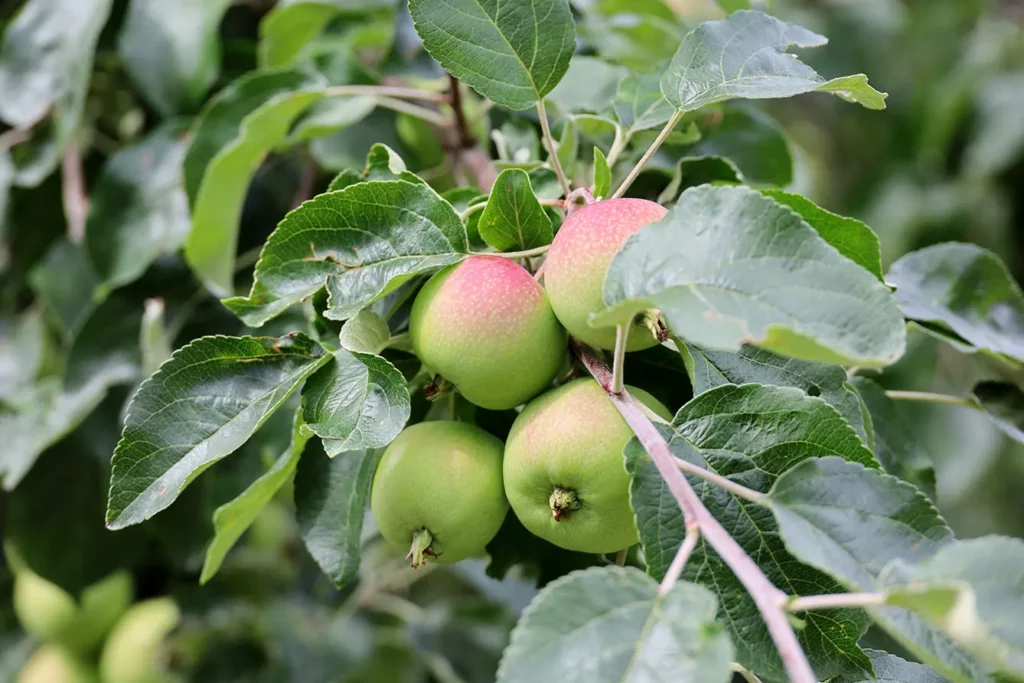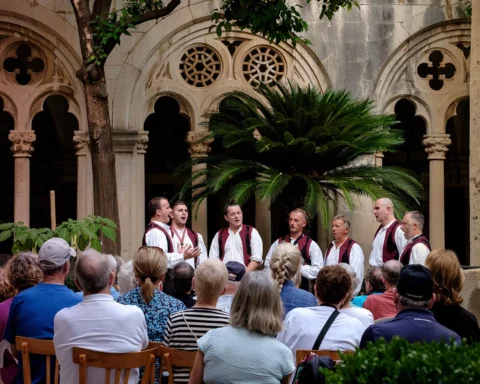The well-known saying promoting the health benefits of apples is not at all overstated. Apples are an essential source of vitamin C, antioxidants, fiber, and carbohydrates. They help promote a healthy digestive system and support immunity (logical, as our overall health and wellbeing have been proven to stem from the gut.) Apples also contain high volumes of boron, which improves the brain’s concentration, memory, and electric activity. And all that with not a single gram of cholesterol! Amazing, especially for such a filling, sweet between-meal snack.
What makes Polish apples so special
Apples come in many varieties. Depending on the source, you may find over 8,000 to 10,000 known globally. This is not surprising since apples have been known to mankind for nearly 9000 years! Originating from Middle Asia, apples made their way to Europe via the Silk Road during the times of ancient Rome. So what does this say about Poland?

The history of apples in this Central European country is shorter; however, still impressive. Poles have been cultivating them for over 900 years. Poland’s soil and climate are perfect for this miraculous fruit. What also grants Polish apples a special place on the apple map is the fact that Poles cultivate them using traditional methods, preserving their different varieties (it is more complicated and less obvious than it seems).
Polish apples in numbers
Poland is the largest European producer of apples and third globally, after China and the USA. It is also the largest European producer of concentrated apple juice, coming in second worldwide (China wins in this race). In fact, they say that every single apple drink in the world has at least a drop of Polish apple concentrate.
Now think about this – the territory of Poland amounts to as little as 7% of the whole EU territory. However, it constitutes about 30% of the total area of orchards within the Community. Poland’s role in apple production is so significant that it made it to the international campaign Cultivate the Taste of Europe that ran from 2019-2021. Its objective was “to inform European consumers of the properties and benefits of our fruit and vegetables, cultivated in the open air and greenhouses, under the strictest quality controls and standards of the European Production Model.”
In 2021 Poland exported 518 thousand tonnes of apples. Exported – that means some of them stayed within the country of origin on the domestic market. Would you like to know how many? Approximately 3.5 million tons (the total production of apples in 2021 amounted to circa four mln tons). To put it into perspective – the apples sold on the domestic market could fill up over 240 thousand trucks!
The specialty of Grójec by the appointment of Her Majesty the Queen
Every Pole has their favorite variety of apples (mine is Szampion (Eng: Champion), by far!). Still, though we may debatet which one is the sweetest or has the best quality of flesh, we all (probably) agree that the best apples come from Grójec.
Queen Bona Sforza, with her input into the cultivation of new varieties of veg in Poland, is known even to schoolchildren. However, it might come as a surprise that the existence of the most recognizable area for the cultivation of apples is also her legacy. In 1545, she received vast areas of land in the Grójec region; by her decision, it was used to cultivate fruit trees.
She granted the local peoples many privileges connected with fruit cultivation, which were confirmed by a royal decree passed in 1578 by her son, Zygmunt August. The decree confirmed the rights of orchard owners who largely turned to cultivating apples. The decree also granted apples from Grójec passage to the royal table for centuries to come. Hundreds of years of traditional apple-growing could not go unnoticed, and now apples from Grójec are marked with the European Protected Geographical Indication mark.
Apple bobbing
As you can see, a Polish apple is a treat one has to try at least once in their lifetime – or preferably more often as they are seriously good for your health and the best out there. Turn them into toffee apples, baked apples, apple mousse (my grandma’s specialty), apple crumble… Let me leave you with one last fun fact about apples – they are about 24% air, which is what makes them float. So don’t miss out on apple bobbing! After all – it must have been one of the ways nature intended us to have fun.







